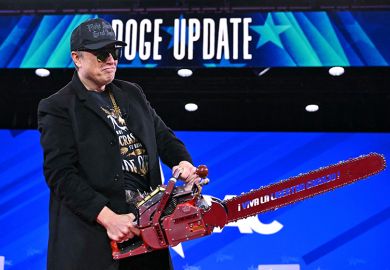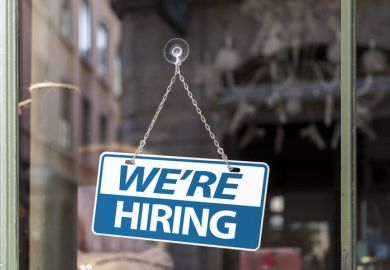The chances of young people from the poorest backgrounds entering higher education remain “extremely low” in many parts of England, with progress on widening access stalling in the last 10 years, according to a new report.
An analysis of data by the National Education Opportunities Network (Neon) found that some areas have gone backwards in sending those from free-school-meal backgrounds to university between 2011-12 and 2021-22.
In most areas in England, state school pupils who have received free school meals (FSM) have a less than one-in-four chance of entering higher education, the reports finds, increasing to a less than one-in-five chance in nearly a third of areas.
The paper, Universities Not for Everyone: levelling up and who is missing out on higher education in England – published on 7 February – calls for a new national target to increase the participation of FSM learners in higher education to 40 per cent by 2030.
Any future reviews of the higher education funding system should “consider how specific support for learners from FSM backgrounds can be introduced that covers and combines tuition fee relief and maintenance support”, it states.
Graeme Atherton, the report’s author and head of the Centre for Inequality and Levelling Up at the University of West London, said there was a “postcode lottery in opportunity for young people from free school meal backgrounds to enter higher education in England and the gaps between the most and least successful areas in terms of participation are only getting wider”.
His research found the rate of increase in FSM pupils progressing to higher education by the age of 19 had slowed from 1.22 per cent a year between 2005-06 – when data was first collected – and 2011-12, to 0.89 per cent a year from 2011-12 to 2021-22.
This masks significant geographical variations, with participation in Westminster and Redbridge in London higher than 60 per cent but lower than 14 per cent in Herefordshire and Swindon.
The areas with the highest increases in the decade are revealed in the report as Hull and Southampton, while in Leicester the rate has decreased by 5.46 per cent and in Blackpool it has gone down by 4.32 per cent.
Neon calls for areas where progress has been “slow or non-existent” to receive extra support and says local authorities should construct their own targets that support the national aim.
The findings are particularly important as the country approaches “what will be a crucial general election for the country”, the report says, especially as political support for widening access appears to have cooled in recent years.
In his recent speech to the Conservative Party conference, prime minister Rishi Sunak described the target for 50 per cent of young people to enter higher education as “one of the great mistakes of the last 30 years” and the report says Labour has “yet to mention the value of widening access to higher education” in its missions for the country if it wins the election.
Nor has access to university been a key feature of the “levelling up” agenda that aims to address regional disparities, something that the report says a future government should address.
Register to continue
Why register?
- Registration is free and only takes a moment
- Once registered, you can read 3 articles a month
- Sign up for our newsletter
Subscribe
Or subscribe for unlimited access to:
- Unlimited access to news, views, insights & reviews
- Digital editions
- Digital access to THE’s university and college rankings analysis
Already registered or a current subscriber? Login








